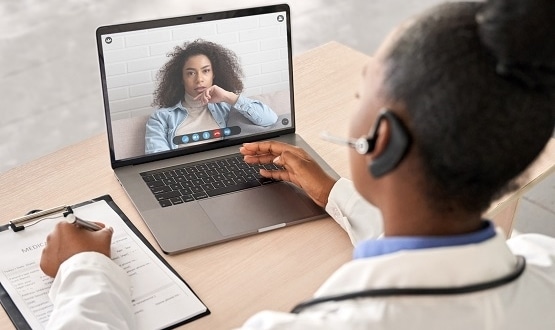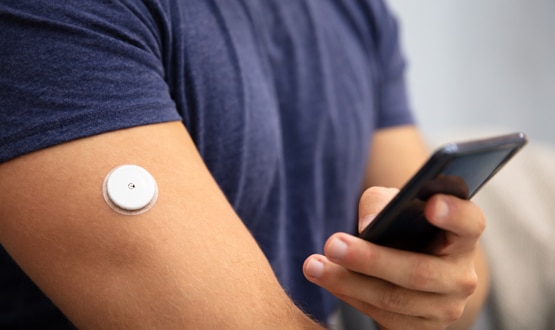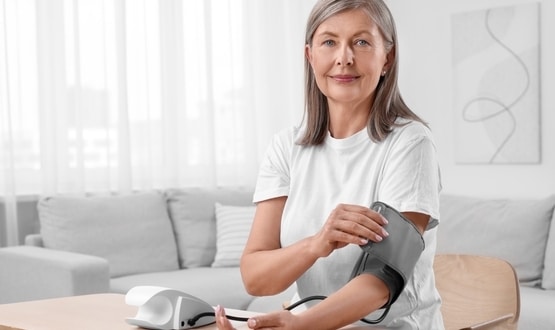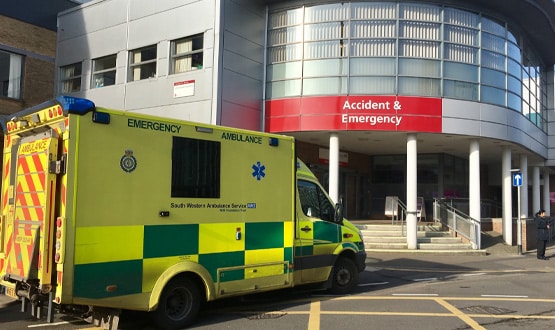Calls for greater investment in GP telehealth following Covid-19

Government should invest in and scale up the use of telehealth tools within general practice to support remote monitoring, digital consultations, and collaboration, according to a new report.
In its new report, General practice in a post Covid world, the Royal College of GPs acknowledged the “remarkable” role technology has played during the pandemic.
The report, which builds on the RCGPs vision for what general practice should look like in 2030, calls for further commitments to digital technology to enable remote monitoring, digital consultations, flexible working and better sharing of data.
It makes a number of recommendations including for government to ensure that GPs have the IT tools, skills and broadband connectivity tools to deliver remote digital consultations; invest in and scale up the use of digital telecare tools which enable the remote monitoring of health conditions; and the roll-out of paperless electronic prescribing systems across the UK.
The college also called for data safeguards, temporarily relaxed during the pandemic, to be restored in a way which “enables data sharing for the purpose of improving treatment and care, directly or via research and audit”.
The adoption of digital tools was “significantly accelerated” during the pandemic. More than 70% of GP consultations in England were carried out face-to-face prior to the Covid-19 outbreak but within weeks the figure was 23%, RCGP figures show.
The report sets out five areas where digital technology can support new ways of working following the pandemic.
Total triage and remote consultations
During the pandemic all patients were triaged by phone or online, known as total triage, allowing GPs to decide the most appropriate follow-up consultation.
Looking past Covid-19 there is a “compelling case” for total triage to remain in place to allow GPs to “better flex” how consultations are delivered, the report states.
Remote consultations have “clear benefits”, including ease of access, but cannot entirely replace face-to-face appointments, it warned.
“Digital consultation channels should, therefore, complement but certainly not replace face-to-face appointments.”
Remote monitoring
“Significant investment” in digital telecare tools is needed to fully realise the benefits of remote monitoring tools, according to the report.
“Digital technology to aid remote monitoring and self-care is a fast-moving landscape, with a proliferation of apps and bio-sensing wearables which can track a range of health metrics; for example, blood pressure, heart rate or blood sugar, as well as mobility and falls,” it states.
Flexible working
The rapid adoption of digital tools during the pandemic has allowed GPs to work remotely and more flexibly which, if continued, could attract more people to the profession, the report found.
But access to technology needs to be improved for this to occur. A survey of RCGP members in the first few weeks of lockdown found 63% could not work remotely because they didn’t have adequate access to technology, including laptops and secure VPS connections.
Working across organisational boundaries
Greater communication between GPs across organisational areas has been facilitated through digital tools such as apps during the pandemic, according to the report.
Maintaining these new channels of communication across primary and secondary care is “vital” after Covid-19, the RCGPs stated.
Paperless electronic prescribing has also increased during the pandemic and should be continued after the pandemic, it found.
The NHS has been rolling its Electronic Prescription Service (EPS) in England since November.
The number of repeat prescriptions ordered through the NHS App increased by 97% in March 2020, while new EPS nominations – where a patient nominates a pharmacy to which their prescription will be sent electronically – rose from 304,000 in February 2020 to 1.25 million in March, the report states.
The RCGPs called for the EPS to be rolled-out across the entirety of the UK.
Data sharing
During the pandemic a number of data sharing restrictions were relaxed to enable GP data to be shared more easily for patient care and research.
These included data from the RCGP research and surveillance centre which saw the number of participating practices double from 550 to 1,100. A number of other programmes, including Public Health England’s Covid-19 Observatory, were also able to quickly and easily collect and analyse Covid data.
This data will continue to provide an understanding of the impact of Covid-19, including mortality and treatment pathways, the report found.
“While data sharing safeguards should be restored after the pandemic, as agreed, we need to strike a balance to enable data to be shared and used to improve treatment and care,” it states.





3 Comments
What about the patient perspective: the digitally excluded, the wary, the enthusiasts? We’ve had to come a long way in the last 4 months, but don’t take us for granted.
Effort is needed to support patients and encourage/entice us to come on board permanently with digital, not just present a fait accompli and leave us to get on with it.
In other words, the accelerated systematic downgrading of healthcare in the UK, which was achieved under cover of the pandemic, should be continued, because nobody will be able to stop it. Brexit Britain can be a world leader in the destruction of healthcare – another shining trophy for the already laden trophy shelf.
Dunno Bertl, that seems like a very heavy handed interpretation of what was said above.
Comments are closed.